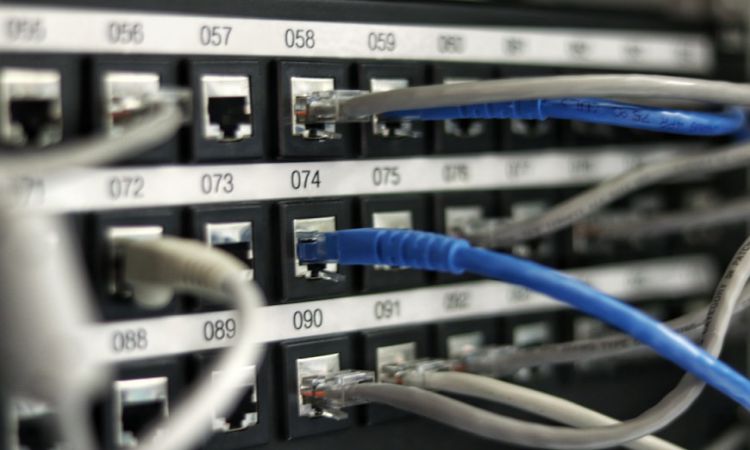 Proxy servers are becoming an increasingly popular method for individuals and businesses to up the ante on their online security and add a veil of anonymity as they browse through web pages.
Proxy servers are becoming an increasingly popular method for individuals and businesses to up the ante on their online security and add a veil of anonymity as they browse through web pages.
These servers are designed to stand as intermediaries between the user’s device and the entirety of the internet. They send information requests to web servers on your behalf and retrieve information from them, allowing you to keep your browsing activity hidden.
Depending on their type, proxy servers can have a vast array of applications, including anonymous browsing, managing and regulating web requests, installing parental controls, bypassing geo-restrictions, web scraping, and more.
Some of the most popular proxy types you could use include residential and datacenter proxies, and although they serve the same purpose, they have a few key differences that could make one better than the other.
Should you sacrifice some capabilities of residential proxies in favor of using datacenter proxies and vice versa, or is there a way you could enjoy the best of both worlds? Let’s find out.
Table of Contents
What are residential proxies?
Residential proxies have the same purpose as any other type of proxy – to hide your IP address from the website you’re visiting and make it appear as if your traffic was coming from a different location. They’ll route all your information requests through their remote servers, but they’ll do so while providing you with a fake new IP address that’s linked to an actual physical device.
To understand how this works, you’ll need to be familiar with the basics of IP addresses.
In a nutshell, an IP address is a numerical label given to every device that connects to the internet – your phone, tablet, and PC. They all have an IP address assigned to them by your Internet Service Provider (ISP). Whenever you change your providers, you’ll receive a new IP address. Whenever you change the network you’re connected to, for example, switching from your home network to your favorite cafe’s public Wi-Fi, your devices will get a different IP address.
Now, when you’re connected to your home network, your devices have residential IP addresses or addresses assigned to home users. They’re not commercial or datacenter IPs, meaning that most websites will gladly welcome traffic coming from them as there’s usually a real person behind the traffic.
Residential proxy providers take advantage of this attitude of websites towards residential IPs. Therefore, they partner with individuals across the globe who use home networks and have their unique residential IP addresses assigned by their ISPs, allowing you to connect to the internet from their authentic IPs.
Residential proxies will help you make your traffic look more legitimate, an essential feature when you’re using bots for web scraping, for instance, and they’ll help you minimize the risks of getting an IP ban.
Their biggest downfalls are that they’re expensive, and the IP addresses aren’t always ethically sourced, depending on the service provider.
What are datacenter proxies?
Datacenter proxies are the more common option. Once again, they work similarly to any other proxy type, hiding your IP address and providing you with a fake new one.
However, unlike residential proxies, datacenter proxies don’t give you access to IP addresses assigned by real ISPs. Instead, they give you fake IP addresses that are stored, as their name would suggest, in massive data centers and servers, unrelated to any ISP.
Most commonly, datacenter proxy providers will have multiple servers across the globe, allowing you to connect to any remote location and make your traffic appear as if it were coming from there.
What makes datacenter proxies stand out from the rest is their excellent performance. Since the IPs are stored in vast data centers, they can offer a high-speed internet connection, often exceeding 1Gbps, and their uptime usually stands around 99%. They are affordable, convenient, and effective.
The only issue is that they’re easily detectable. Many websites understand that IPs coming from data centers are used by proxy and VPN providers, corporations, and bots. Therefore, they are more likely to block or ban datacenter IP addresses, making it difficult to continue browsing or scraping without interruptions.
Rotating ISP proxies is the best of both worlds
If you want to enjoy the speed, affordability, and convenience of datacenter proxies without suffering through their disadvantages or overlooking residential proxies, you will need a rotating ISP proxy.
Rotating ISP proxies gives you the best of both worlds. They’re hosted on datacenters, giving them excellent performance and capabilities, but they’re also registered with official ISPs, making the IP addresses they provide appear genuine and authentic.
Moreover, ISP proxies offer their users IP rotation, allowing them to switch between different IPs for different tasks – one for web scraping, for instance, and another for market research.
While they’re usually more expensive than the typical datacenter proxies, they are significantly more affordable than residential proxies.
Conclusion
Residential proxies enjoy an excellent reputation, providing genuine IP addresses linked to ISPs. However, they are expensive and often exclusive, making it difficult to find a reliable residential proxy provider.
Datacenter proxies, on the other hand, have a somewhat worse reputation, but they’re fast and affordable.
Rotating ISP proxies are fast, affordable, and reputable, offering IP addresses from ISPs. They give you the best of both worlds without forcing you to suffer through the downfalls of residential or datacenter proxies. They might be the best choice for those in need of extra security and online anonymity.






